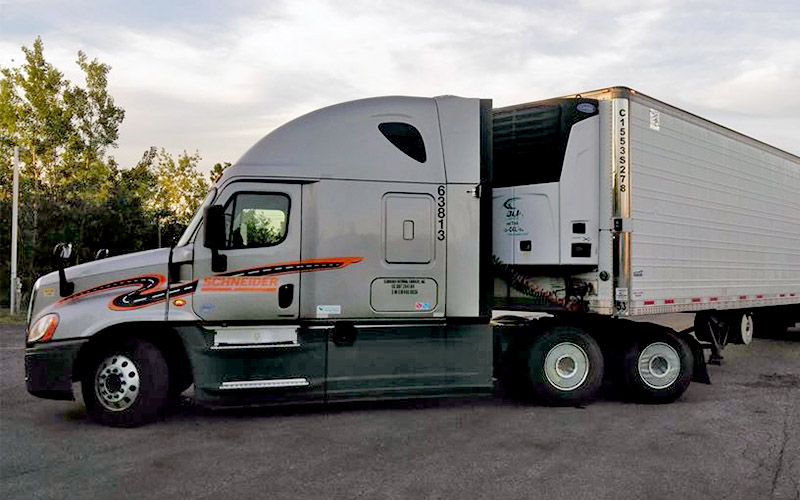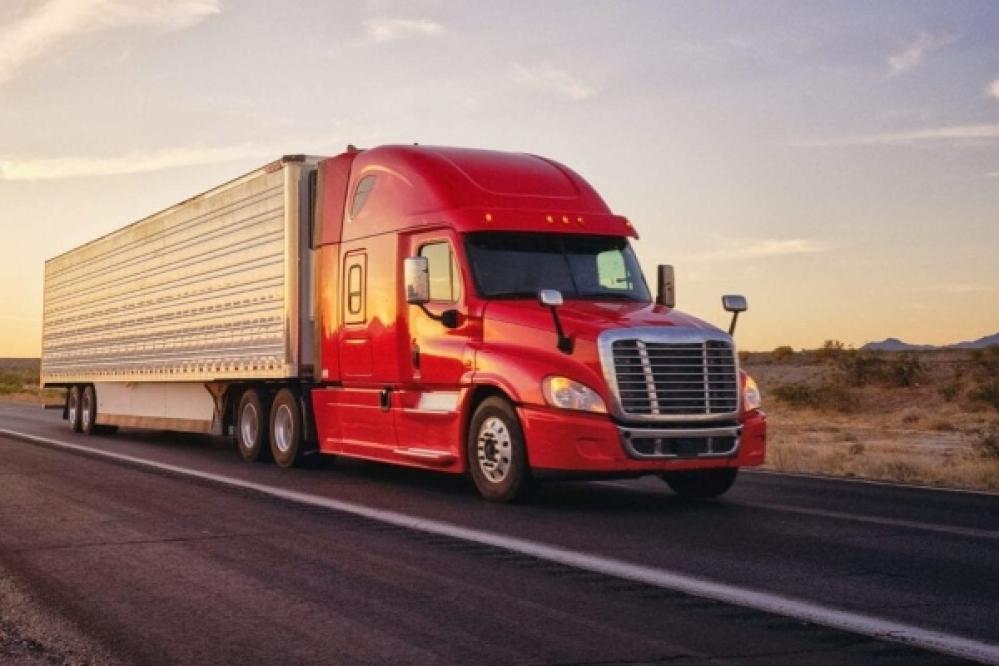Selecting the Right Transportation Refrigeration System for Your Fleet
Selecting an appropriate transportation refrigeration system for your fleet is a critical choice that can dramatically influence functional effectiveness and product integrity. It necessitates a thorough understanding of your details refrigeration demands, consisting of temperature requirements and distribution timetables.
Comprehending Your Refrigeration Requirements
When picking a transport refrigeration system, comprehending your certain refrigeration demands is paramount to guaranteeing product high quality and conformity with market criteria. Numerous variables must be thought about to figure out one of the most ideal system for your procedure. These consist of the kind of items being transported, their temperature requirements, and the duration of transit.
For perishable goods, such as fresh fruit and vegetables or drugs, precise temperature control is crucial. Understanding the temperature array needed for each and every item permits for the option of a system that can keep those problems constantly. Furthermore, consider the frequency of deliveries and the range took a trip; longer trips may necessitate systems with enhanced insulation or back-up power options to prevent temperature variations.

Moreover, the capability of the refrigeration device should line up with your tons size. Overwhelming a system can cause insufficient air conditioning, while an extra-large system might be costly and ineffective. Last but not least, governing compliance is vital; familiarize yourself with neighborhood and global guidelines regulating the transportation of temperature-sensitive items. By completely examining these variables, you can make certain that your picked transportation refrigeration system properly fulfills your functional demands and keeps item stability.
Sorts Of Transport Refrigeration Equipment
Picking the ideal kind of transport refrigeration system is critical for making certain the risk-free transit of temperature-sensitive items. There are numerous systems offered, each developed to fulfill details requirements and applications.
The most usual types include straight growth (DX) systems, which use cooling agent to take in heat and cool down the cargo area properly. These systems are typically favored for their performance and lower first expenses. Another alternative is the central refrigeration system, which offers multiple areas or cars from a solitary compressor system. This is specifically helpful for larger fleets calling for consistent temperature level control across numerous transport devices.
Furthermore, there are self-supporting refrigeration units that integrate the compressor and evaporator in one plan. These systems are excellent for smaller automobiles or when room is limited. For specialized applications, such as carrying perishables or pharmaceuticals, cryogenic refrigeration systems might be made use of, employing liquid nitrogen or carbon dioxide to keep ultra-low temperature levels.
Lastly, hybrid refrigeration systems that incorporate electrical and diesel power are ending up being significantly preferred, offering versatility in power use and minimizing ecological influence. Understanding these different kinds permits fleet operators to make informed decisions tailored to their certain functional demands.
Key Features to Think About
Just how can one ensure that a transportation refrigeration system satisfies all functional demands? To attain this, numerous vital functions must be thoroughly examined. To start with, temperature level control is critical; systems need to offer precise temperature level setups to suit different products, ranging from frozen items to disposable products.
Energy performance is an additional crucial consideration, as it impacts operational prices. Try to find systems that use advanced modern technology, such as variable rate compressors, to enhance energy use without jeopardizing performance.
An additional function to evaluate is the reliability and durability of the tools. Solutions constructed from high-grade products and designed for strength against rough problems will lower maintenance costs and downtime.
Additionally, the ease of upkeep and ease of access of components can substantially influence functional efficiency (thermo king truck refrigeration). Functions like modular layouts or remote surveillance capabilities can enhance service procedures
Last but not least, compatibility with existing fleet administration software can boost monitoring and reporting processes. By focusing on these vital functions, fleet drivers can ensure that their transportation refrigeration systems not just meet present needs but additionally adapt to future requirements.

Budgeting for Refrigeration Solutions
Examining essential features of transport refrigeration systems is just one component of ensuring functional performance; budgeting for refrigeration options is similarly essential. A well-structured budget not just includes the initial purchase rate however Click Here also takes into consideration long-term functional expenses, including power usage, maintenance, and possible repair work needs.
When developing a budget plan, fleet managers must first examine the total price of ownership (TCO) This consists of not only the acquisition expenses but additionally continuous expenses associated to fuel performance and the toughness of the refrigeration systems. Picking systems with higher power effectiveness rankings may generate considerable financial savings in time, mitigating in advance costs.
Additionally, fleet operators must account for prospective scalability. As businesses grow, the refrigeration requires may alter, demanding upgrades or additional systems. Preparation for these future costs can prevent economic strain.
Financing alternatives can also play a vital role in budgeting. Leasing, fundings, or straight-out purchases each have unique economic effects, and understanding these can aid in making a notified decision. Inevitably, an extensive budget plan that takes into consideration both future and instant requirements guarantees that transportation refrigeration systems add see this favorably to the this website overall operational effectiveness of the fleet.
Upkeep and Assistance Alternatives
In the realm of transport refrigeration systems, effective maintenance and support choices are important for making certain optimal performance and durability. Routine upkeep is crucial to prevent breakdowns and maintain the integrity of temperature-sensitive cargo. It is advisable to establish a routine inspection schedule with certified technicians who can perform necessary checks and repairs on refrigeration units.
Assistance alternatives need to consist of a durable service agreement, covering both routine upkeep and emergency repair work. This guarantees that your fleet has access to motivate aid, decreasing downtime and keeping operational efficiency. Many manufacturers supply detailed support packages that include training for your team, allowing them to carry out basic troubleshooting and upkeep jobs.
Additionally, utilizing remote surveillance innovation can enhance your upkeep method - thermo king truck refrigeration. These systems provide real-time data on temperature level and efficiency, enabling aggressive actions before concerns intensify. Buying training and innovation not only improves your fleet's reliability yet likewise extends the life expectancy of your refrigeration systems
Ultimately, a critical method to upkeep and support will certainly protect your financial investment and guarantee that your transportation refrigeration systems operate at peak efficiency, providing consistent results for your organization.

Verdict
In conclusion, picking the proper transport refrigeration system for a fleet necessitates a thorough analysis of certain refrigeration needs, system kinds, and vital features. In addition, cautious budgeting and preparation for future scalability will contribute to the lasting success of the refrigeration method.
Selecting a proper transport refrigeration system for your fleet is a critical choice that can considerably influence operational performance and product stability.When selecting a transportation refrigeration system, understanding your certain refrigeration needs is extremely important to making sure item high quality and conformity with industry standards. By extensively analyzing these elements, you can ensure that your selected transportation refrigeration system effectively satisfies your functional demands and preserves product stability.
Eventually, a detailed spending plan that considers both future and prompt needs guarantees that transportation refrigeration systems add positively to the overall operational performance of the fleet.
In verdict, selecting the suitable transportation refrigeration system for a fleet demands a thorough assessment of certain refrigeration demands, system kinds, and essential functions.